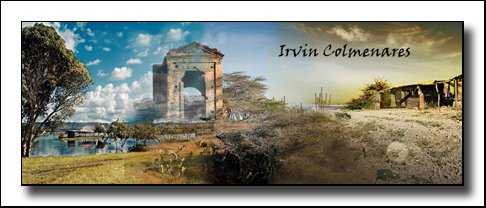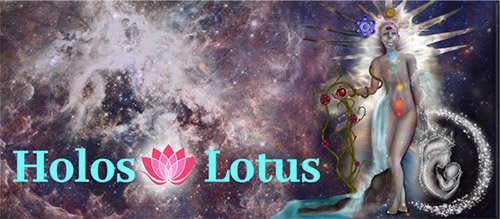La buena vida | The Good Life

En el origen de los tiempos la vida del ser humano transcurría en una total incertidumbre. Cada día aquel ser indefenso se enfrentaba a un mundo hostil, vivía al vaivén de las fuerzas de la naturaleza.
Los peligros lo acechaban por doquier. Su realidad cotidiana se limitaba a sobrevivir a cada instante y el miedo se convertiría en su principal aliado para la supervivencia.
En tales condiciones la aparición de un concepto como el “Buen Vivir” sería totalmente inimaginable, la vida no daba para eso. Tanto las ideas como las palabras necesitan un sustento mínimo en las condiciones de vida para poder ser pensadas, para poder aparecer. Porque aunque nuestra capacidad de imaginación sea ilimitada, son las prácticas de vida las que hacen posible que una idea aparezca o no.
Mucho han cambiado las condiciones de vida desde aquellos tiempos primigenios.
Llegados a nuestros días la tecnología ha permitido que muchos de los peligros de antaño no sean amenazas reales. Los seres humanos están mejor preparados, y armados, para hacerle frente a las bestias que pudieran amenazarlos. Y aunque no es posible contener la monumentalidad de las fuerzas naturales, existen los medios para minimizar los daños que puedan ocurrir cuando el ser humano, en medio de su ilimitada imprudencia, decide montar sus hábitats en zonas de extrema vulnerabilidad.

Como civilización hemos logrado avances considerables en muchos aspectos, negarlo sería poco serio.
Y aunque nunca podremos borrar la presencia de la incertidumbre en nuestras vidas, si hemos logrado producir las condiciones necesarias para pensar dos ideas claves en el desarrollo humano. Una es la seguridad, y en estrecha relación con esta, otra idea que ha ganado notoriedad en el discurso del mundo contemporáneo: “la Buena Vida”.
Al hablar de “Buena Vida” implícitamente estamos pensando en una oposición, en un ideal de lo que no está, de lo deseable, y, por lo tanto, en una propuesta con tintes utópicos.
Hay una vida que no es buena, eso lo podemos constatar con una somera mirada al mundo que nos rodea. No hay que afanarse mucho para toparse con los dramas de la guerra, de la miseria extrema, de la discriminación. La ausencia del Estado de Derecho es una realidad que amenaza el cumplimiento de los Derechos Humanos en muchos países.
Pero ese panorama desolador no deja indiferente a todas las conciencias, las interpela de tal modo que logra conmoverlas, y entonces comenzamos a pensar en otra cosa mejor, lo que pudiéramos llamar “La Buena Vida”.
Sin embargo, como todo concepto que sea multidimensional, al hablar de “Buena Vida” nos estamos metiendo en un tema que puede referirse a muchas cosas y puede ser interpretado de múltiples maneras. Y cuando una idea es demasiado amplia se corre el riesgo de que pierda sustancia y, en consecuencia, se vacíe de contenido, y se quede como algo fofo, inconsistente, inocuo…
En mi manera de entender el asunto la clave de cualquier interpretación de la “Buena Vida” pasa por la alcabala de la idea de seguridad, sin esa idea transversal y de fondo lo demás no fluye.
Si contamos con una sólida seguridad jurídica, con un Estado de Derecho asumido con seriedad y responsabilidad por los ciudadanos, es más fácil avanzar en el cumplimiento de los Derechos Humanos.

Pensemos en cuestiones elementales y básicas como la educación o la salud. Hay países donde estas cuestiones figuran como derechos fundamentales de la gente, sin embargo, en la práctica no se cumplen, la gente se queda sin estudio y se muere sin la asistencia médica necesaria. La norma legal se convierte en letra muerta.
Parte del problema es que no se internaliza la importancia de la norma legal para avanzar en la convivencia, la gente no ha hecho suya la ley, no ha logrado meterla en su ADN. Por eso es tibia la presión para su cumplimiento. Los mandatarios y funcionarios actúan de manera irresponsable porque se saben amparados por la impunidad.
En otros ámbitos de la vida, la seguridad también es crucial para lograr una vida buena. Pensemos por ejemplo en el uso y disfrute de los espacios públicos. Hay ciudades donde los ciudadanos han hecho de sus casas una especie de prisión. No se atreven a caminar por las calles y los parques porque temen ser atacados por antisociales de cualquier ralea. Solo se sienten seguros en el interior de sus hogares…
Es mucho lo que falta por hacer para que cada nuevo ser humano en el momento de su nacimiento cuente con las garantías necesarias para desarrollar plenamente sus potencialidades, sin más limitaciones que las que él mismo se imponga.
Entre tanto cada uno de nosotros va llenando como puede su idea de “La vida Buena”. Y aquí no hay normas únicas ni rígidas, el abanico es amplio y las diferentes opciones son respetables, siempre que no atenten contra el derecho de los demás. Después de todo solo tenemos esta vida y debemos aprovechar la oportunidad…
Gracias por tu tiempo.


In the beginning of time, the life of the human being passed in total uncertainty. Every day that defenseless being faced a hostile world, lived in the sway of the forces of nature.
Dangers lurked everywhere. His daily reality was limited to surviving at every moment and fear would become his main ally for survival.
In such conditions, the emergence of a concept such as "Good Living" would be totally unimaginable, life was not enough for that. Both ideas and words need a minimum support in the conditions of life to be able to be thought, to be able to appear. Because although our capacity for imagination is unlimited, it is the practices of life that make it possible for an idea to appear or not.
Life conditions have changed a lot since those primitive times.
Nowadays, technology has made it possible that many of the dangers of yesteryear are no longer real threats. Humans are better prepared, and better armed, to deal with the beasts that might threaten them. And while it is not possible to contain the monumentality of natural forces, the means exist to minimize the damage that can occur when humans, in the midst of their boundless recklessness, decide to set up their habitats in areas of extreme vulnerability.
As a civilization we have made considerable progress in many respects, to deny it would be unserious.

And although we will never be able to erase the presence of uncertainty in our lives, we have managed to produce the necessary conditions to think about two key ideas in human development. One is security, and closely related to this is another idea that has gained notoriety in the discourse of the contemporary world: "the Good Life".
When we speak of the "Good Life" we are implicitly thinking of an opposition, of an ideal of what is not there, of what is desirable, and, therefore, of a proposal with utopian overtones.
There is a life that is not good, we can see that with a cursory glance at the world around us. We do not have to look very hard to find the dramas of war, extreme poverty and discrimination. The absence of the rule of law is a reality that threatens the fulfillment of human rights in many countries.
But this desolate panorama does not leave all consciences indifferent, it challenges them in such a way that it manages to move them, and then we begin to think of something better, what we could call "The Good Life".
However, as with any concept that is multidimensional, when we speak of "The Good Life" we are getting into a subject that can refer to many things and can be interpreted in multiple ways. And when an idea is too broad, there is a risk that it loses substance and, consequently, is emptied of content, and remains as something flabby, inconsistent, innocuous?
In my way of understanding the matter, the key to any interpretation of the "Good Life" lies in the idea of security, without this transversal and fundamental idea the rest does not flow.

If we have a solid legal security, with a Rule of Law assumed with seriousness and responsibility by the citizens, it is easier to advance in the fulfillment of Human Rights.
Let us think of elementary and basic issues such as education or health. There are countries where these issues appear as fundamental rights of the people, however, in practice they are not fulfilled, people remain without education and die without the necessary medical assistance. The legal norm becomes a dead letter.
Part of the problem is that the importance of the legal norm is not internalized in order to advance in coexistence, people have not made the law their own, they have not managed to make it part of their DNA. That is why the pressure for compliance is lukewarm. The leaders and officials act irresponsibly because they know they are protected by impunity.
In other areas of life, security is also crucial to achieve a good life. Let us think, for example, of the use and enjoyment of public spaces. There are cities where citizens have turned their homes into a kind of prison. They do not dare to walk in the streets and parks because they fear being attacked by antisocials of any kind. They only feel safe inside their homes?
Much remains to be done so that each new human being at the moment of his birth has the necessary guarantees to fully develop his potential, with no other limitations than those he imposes on himself.
In the meantime, each one of us is filling as best he can his idea of "The Good Life". And here there are no single or rigid rules, the range is wide and the different options are respectable, as long as they do not infringe on the rights of others. After all we only have this one life and we must seize the opportunity...
Thank you for your time.
Translated with DeepL.com (free version).








Comunidad Be Entrepreneur

Posted Using InLeo Alpha
«La buena vida» se refiere a una existencia ideal llena de felicidad, salud, satisfacción y prosperidad. Es un concepto utópico, representa una aspiración hacia un estado perfecto de la sociedad o la vida personal donde todas las necesidades y deseos están cumplidos. Es y será un ideal inalcanzable debido a las imperfecciones inherentes de la realidad humana. «La Buena Vida», por definición, es un ideal que sirve como horizonte de posibilidades más que como una meta concreta alcanzable.
Sí, es un criterio subjetivo, un ideal que nos mueve a hacer las cosas mejor. Gracias por pasar y comentar estimado @amigoponc. Un fuerte abrazo desde Maracay.
"mi libertad termina cuando afecta la libertad de mi prójimo" esta frase deberíamos comprenderla para poder lograr el buen vivir como sociedad
Con esa máxima no tendríamos mayores problemas, es la clave para una buena convivencia. Muchas gracias por pasar y comentar estimado @geca.originario. Un fuerte abrazo desde Maracay.